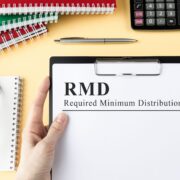A tax boost for New Jersey homeowners making more than $1 million yearly is likely to begin conversations in between high-net-worth customers and their financial consultants about whether it’s time to load up and leave.
Gov. Phil Murphy was arranged to sign into law today a spending plan bill that would enforce a 10.75% tax on every dollar earned between $1 million and $5 million. Previous law imposed an 8.97% tax on incomes in that range and imposed the 10.75% tax at $5 million and above.
When he revealed the tax hike previously this month, Murphy said the extra profits would boost the state’s spending plan during the coronavirus pandemic. Besides, he said the state would supply a $500 tax rebate to households with incomes under $150,000– or individual making less than $75,000– and at least one reliant child.
“In this unmatched time, when many middle-class families and others have sacrificed a lot, now is the time to ensure that the most affluent amongst us are likewise contacted us to make a modest sacrifice by paying pennies on the dollar more for any income over $1 million,” Murphy said in a Sept. 17 declaration.
However wealthy New Jersians might reevaluate remaining part of the state’s tax base, financial investment advisers said.
“I do not know that this tax boost creates an outflow, however it makes individuals think about it again,” stated Christopher Cordaro, chief investment officer at RegentAtlantic in Morristown, New Jersey. “For anybody earning in between $1 million and $5 million, it makes them reconsider at is it worth it to remain in New Jersey. It will be on our clients’ agendas to talk about.”
The additional tax burden will make New Jersey homeowners think of moving to lower tax states, such as next door in Pennsylvania, down to Florida or perhaps to New York, where taxes are looking more inexpensive, stated Kevin Donohue, a partner at Tradition Planning in West Chester, Pennsylvania.
“Those clients who are on the bubble about where they’re living, it might be the straw that breaks the camel’s back,” stated Donohue, whose firm lies in suburban Philadelphia, not far from the New Jersey border. The tax walking “might trigger them to reassess what they’re paying in New Jersey versus what they would be paying in Pennsylvania or New York City. For numerous households, that’s a meaningful number.”
Even if high-earning customers do not leave the state, they’ll be searching for ways to minimize their taxes, stated Cynthia Meyer, creator of Reality Preparation in Gladstone, New Jersey. The current tax walking begins top of the constraints on the deductibility of state and regional taxes introduced by the 2017 federal tax reform law.
“New Jersey locals have gotten hit pretty hard by taxes,” Meyer stated. “There’s going to be a bigger focus on tax reduction now.”
Those tax savings conversations might include making adjustments in retirement plans, matching capital gains against taxes, and trying to find tax breaks in areas such as realty, she stated.
Among the tax-saving options Cordaro lays out for his clients– aside from departing New Jersey themselves– is relocating income-producing properties to tax-friendly states. For example, a client just recently developed a trust in South Dakota for a business interest so that when he offered it, he would avoid New Jersey taxes. South Dakota does not impose an income tax.
“My job as a consultant is to comprehend my clients’ worths and measure the various options they have,” Cordaro said. “They have to make the choice.”
The New Jersey tax walking is not earth-shaking for the wealthy, said Andy Panko, owner of Tenon Financial in Iselin, New Jersey. But he has mixed sensations about the tax because much of the profits will go to refunds for those in lower tax brackets.
“The tax itself is all right,” Panko said. “If you’re making multi-millions a year, this does not feel that bad to me. What I do not like is how they’ll utilize it. It’s refraining from doing anything to assist the budget. It’s an effort to rearrange wealth from the high-income earners to the low-income earners.”
Whether clients are upset or sanguine about the new tax, it is essential to connect to them, Meyer said.
“If somebody has a customer in New Jersey, they should call them today or tomorrow and say, ‘Let’s talk about it,'” she stated.























Comments